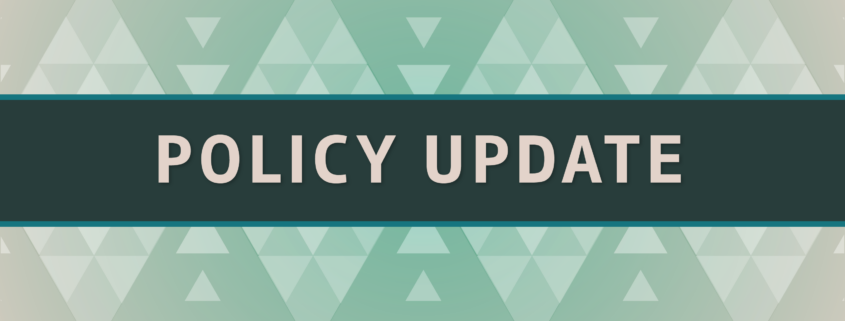January Policy Updates: Legislative Wins, IHS Reorganization, and Upcoming Opportunities!
In this Edition:
$ FY 2027 Budget Formulation: Tribal Leaders Recommend Increased Urban Indian Health Funding in Fiscal Year 2027 IHS Area Reports.
📜 Appropriations Update: Continuing Resolution Extends Funding for SDPI, Medicaid and Safety Net Programs Outlook in Budget Reconciliation.
💡 Legislative Updates: NCUIH Celebrates the Passage of Key Legislation Supporting Native Veterans and Children.
🆕 IHS Reorganization Finalized: New Division of Urban Indian Affairs and Office of Tribal and Urban Affairs Announced.
📋 119th Congressional Assignment Updates
🎤 Advocacy: NCUIH Provides Key Recommendations on CDC Maternal Health and Tribal Maternal Mortality Review.
⚖ Monitoring the Bench: Kerr v. Planned Parenthood South Atlantic on Medicaid Provider Rights.
📬 ICYMI: IHS Announcements on Contract Support Costs, Syphilis Outbreak Response, Upcoming IHS HIT Modernization Sessions, and More.
🤝 NCUIH in Action: NIHB MMPC Retreat and DOI Secretary Haaland’s farewell.
🔍 Registration Open!: NCUIH 2025 Annual Conference (April 22–25).
📆 Important Dates and Events: Georgetown University Center for Children and Families and NCUIH Webinar on Potential Impacts of Proposed Federal Medicaid Cuts on Native Communities, NCAI 2025 Winter Session, and More.
📋 Funding Opportunities: HRSA Behavioral Health Workforce Development Technical Assistance Program Applications Open and more!
Tribal Leaders Recommend Increased Urban Indian Health Funding in Fiscal Year 2027 Area Reports

On January 22-23, 2025, IHS held their Area Report Presentations Webinar for Fiscal Year (FY) 2027 where Tribal leaders from all 12 IHS Areas and leaders from Native organizations, including NCUIH, presented on their budget requests. Tribal leaders spoke about the need to increase urban Indian health funding.
- What is it?: As part of the trust responsibility to provide health care to all American Indian and Alaska Native (AI/AN) people, Tribal Leaders present their funding needs each year to the Secretary of HHS and the Director of the Office of Management and Budget. The recommendations are formed through the Tribal Budget Formulation Work Group and serve as a framework for the Administration in setting budget amounts for their annual requests to Congress.
- What are they saying?: Several Areas featured the work of UIOs in their presentations and advocated for increased allocation of funding and resources for urban Indian health. Several Area Tribal Representatives highlighted the importance of funding the Urban Indian Health line item, with 8 of the 12 IHS Areas including funding for Urban areas either in their top priorities or as a Hot Topic issue.
For example, Debbie Danforth, Tribal Representative for the Bemidji Area stated that “Urban Indian health centers need critical funding increases to serve large American Indian populations in urban settings… currently, there is a need for FMAP support and expansion of funds for [urbans].”
Stephen Kutz, Cowlitz Tribal Council and Portland Area Representative also stated that there needs to be increased funding for the Urban Health Line item noting that UIOs are “the most underfunded part of our health care system and yet some of our neediest people are seeing those…the funding is not adequate to give them all the services they need.”
Alexandra Payan, NCUIH’s Interim Director of Federal Relations, presented the top priorities for urban Indian health for FY 2027 during the Area Report Webinar:
- Full funding for UIOs with no cuts during sequestration
- 100% FMAP for UIOs
- Recruitment and retention of workforce
- Special Diabetes Program for Indians (SDPI) reauthorization
- Increased resources for: food/housing insecurity and Traditional Healing services
Next Steps: On February 11-12, 2025, IHS will host the FY 2027 National Tribal Budget Formulation Work Session. This is a 2-day annual meeting where the two tribal representatives from each Area come together to review and consolidate all the Area’s Budget recommendations into a comprehensive set of national health priorities and budget recommendations.
Appropriations Update: Continuing Resolution and Budget Reconciliation
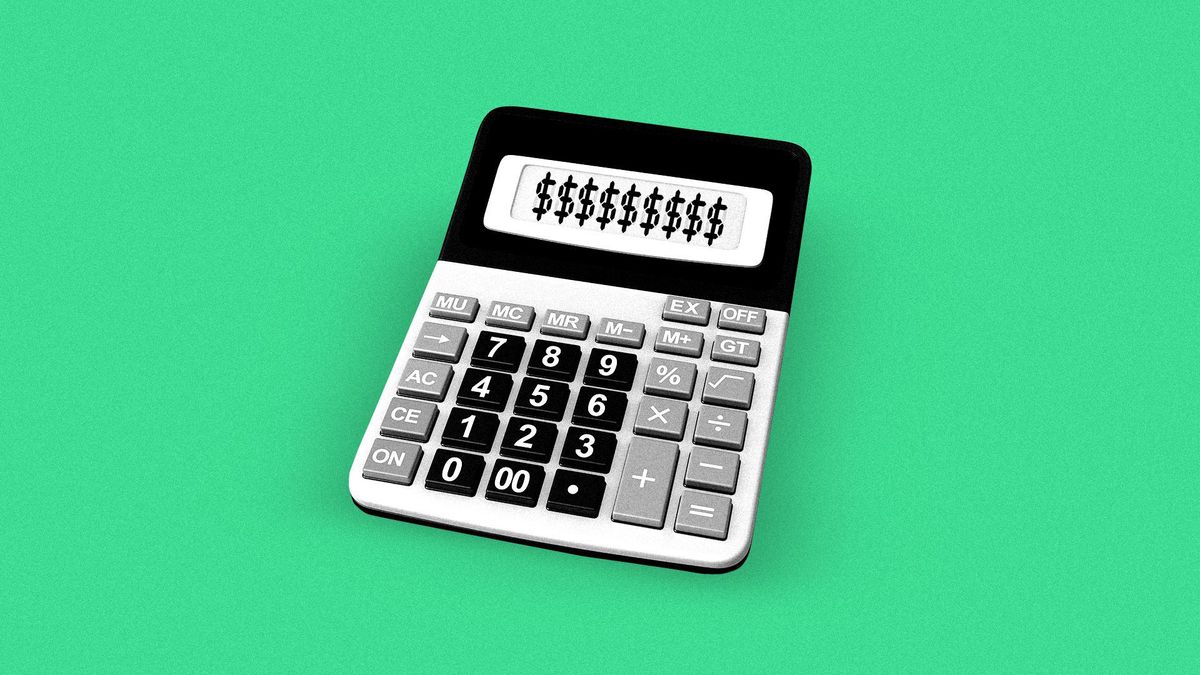
On December 21, 2024, a Continuing Resolution (CR) was passed which extends government funding from December 20, 2024, to March 14, 2025, including the Special Diabetes Program for Indians (SDPI) at $39.3 million through March 31, 2025.
- Read more on NCUIH’s blog.
Reconciliation: Congressional leadership is prioritizing a single budget reconciliation bill anticipated for completion in early April. Key areas of focus:
- Border policy
- Tax reform
- Debt ceiling
- Medicaid and Supplemental Nutrition Assistance Program (SNAP) reforms
NCUIH is advocating for:
- Inclusion of the Indian Health Service Professions Tax Fairness Act to make IIHS scholarships and loan repayment program payments tax-exempt.
- Adding Contract Support Costs to the reconciliation package.
Medicaid and Safety-Net Program Updates
Proposed Medicaid Changes: House Republicans may propose $2.3 trillion in cuts to offset tax cuts. Proposed Medicaid changes include:
- Medicaid work requirements: $120 billion
- Per capita caps on state funding: $918 billion
- Lower Federal Medical Assistance Percentage (FMAP) floor: $387 billion
- Ending higher Medicaid reimbursements for “able-bodied” adults: $690 billion
Safety-Net Programs at Risk:
Proposals include cuts to SNAP, Temporary Assistance for Needy Families (TANF), and elimination of the Social Services Block Grant.
Earmark Requests:
- Congressionally Directed Spending, or Earmarks, are an additional funding opportunity, where Members can advocate for programs and projects that are important to their state or district.
- If anyone is interested in applying for an Earmark for FY26 or would like more information, please reach out to Jeremy at jgrabiner@ncuih.org to schedule a meeting.
Legislative Updates: Key Bills on Child Welfare and Native Veterans Signed into Law
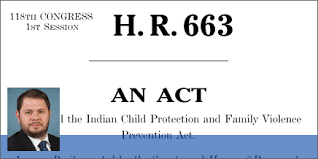
Native American Child Protection Act (H.R. 663)
Signed into law on December 23, 2024.
- What is it?: This bill would reauthorize and revise Programs to investigate and prosecute child abuse, child neglect, and family violence involving Native American children.
- How does it impact UIOs? The bill makes UIOs eligible for the Indian Child Abuse Treatment Grant Program, creates a National Indian Child Resource and Family Services Center (the Center) that will provide technical assistance and training to Tribes, Tribal organizations, and UIOs, and allows UIO representatives with expertise in child abuse and child neglect to sit on a 12-member Advisory Board to advise and assist the Center.
Elizabeth Dole Home Care Act of 2024 (S.141)
Signed into law on December 23, 2024.
- What is it?: The bill is a comprehensive package of bills that significantly expands and reforms the delivery of services at the U.S. Department of Veterans Affairs (VA) for veterans, service members, and their families.
- How does it impact UIOs? This legislation directs the VA to collaborate with the Director of the Indian Health Service (IHS) and representatives from Tribal health programs and UIOs to ensure the availability of home-and community-based services for AI/AN Veterans.
Lumbee Fairness Act (H.R. 1101)
On December 17, 2024, the Lumbee Fairness Act passed the House. It did not pass the Senate and was reintroduced in the House on January 16, 2025.
- What’s New?: On January 23, 2025, President Trump signed a memorandum to the Secretary of the Interior to submit a plan to advance full federal recognition of the Lumbee Tribe of North Carolina.
119th Congressional Assignment Updates:
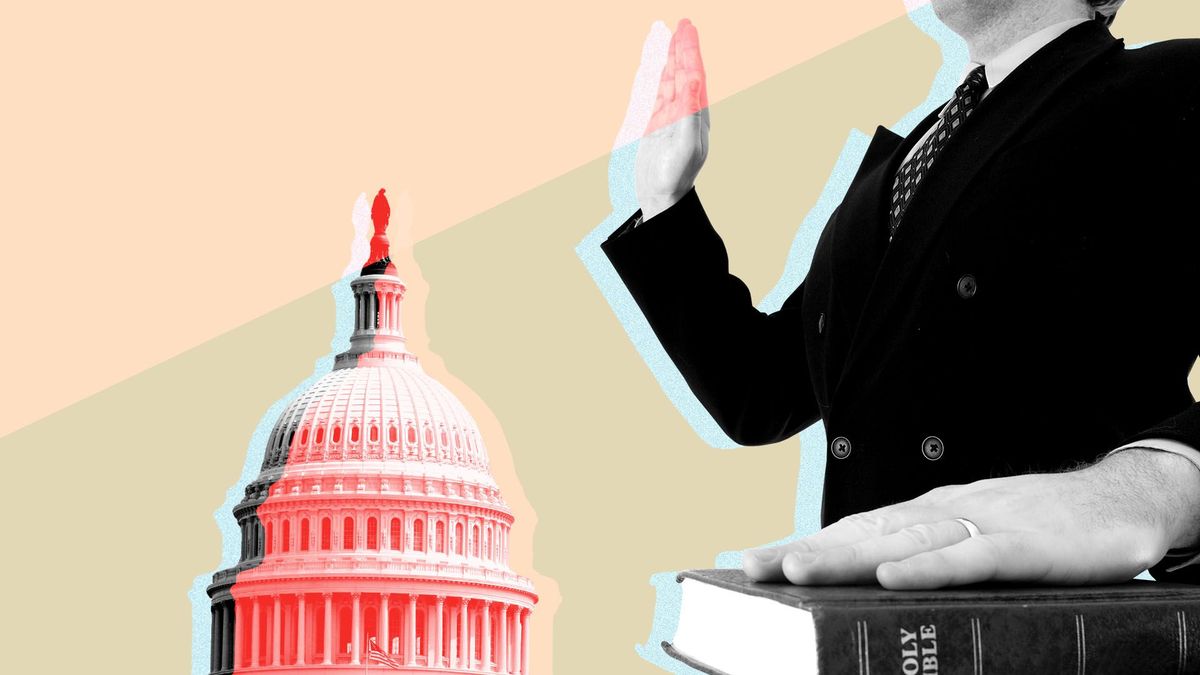
Senate:
- Senate has switched to Republican control (53-47).
- The Majority Leader is John Thune (R-SD).
- The Democratic Leader is Chuck Schumer (D-NY).
House:
- The House continues to be under Republican control (219-215, with one vacancy).
- The Speaker of the House is Mike Johnson (R- LA-4).
- The Minority Leader is Hakeem Jefferies (NY–8).
Relevant Senate Committee Leaders:
- Senate Finance – Chairman Mike Crapo (R-ID), Ranking Member Ron Wyden (D-OR)
- Senate Indian Affairs – Chairwoman Lisa Murkowski (R –AL), Ranking Member Brian Schatz (D- HI)
- Senate Health, Education, Labor and Pensions (HELP) – Chairman Bill Cassidy (R-LA), Ranking Member Bernie Sanders (D-VT)
- Senate Appropriations – Chair Susan Collins (R-ME), Ranking Member Patty Murray (D-WA)
Relevant House Committee Leaders:
- House Energy and Commerce – Chairman Brett Guthrie (R–KY-2), Ranking Member Frank Pallone (D-NJ-6)
- House Ways and Means – Chairman Jason Smith (R–MO-8), Ranking Member Richard Neal (D-MA-1)
- House Natural Resources – Chairman Bruce Westerman (R-AR-4), Ranking Member Jared Huffman (D-CA-2)
- House Appropriations – Chair Tom Cole (R-OK-4) (Chickasaw), Ranking Member, Rosa DeLauro (D-CT-3)
Committee Updates
- Senator Moran has joined the Senate Committee of Indian Affairs (SCIA).
- Rep. Maloy (R-02-UT) has joined the House Interior Appropriations Committee.
IHS Publishes Final Notice on IHS Reorganization, Includes Information on Division of Urban Indian Affairs

On January 8, 2025, IHS published a final notice in the Federal Register detailing the reorganization of IHS Headquarters, including:
- Establishment of the Office of Tribal and Urban Affairs and the Division of Urban Indian Affairs.
- These changes were discussed during the November 13, 2024, Urban Confer.
- No feedback is being requested on this notice.
NCUIH Provides Key Recommendations on CDC Maternal Health and Tribal Maternal Mortality Review
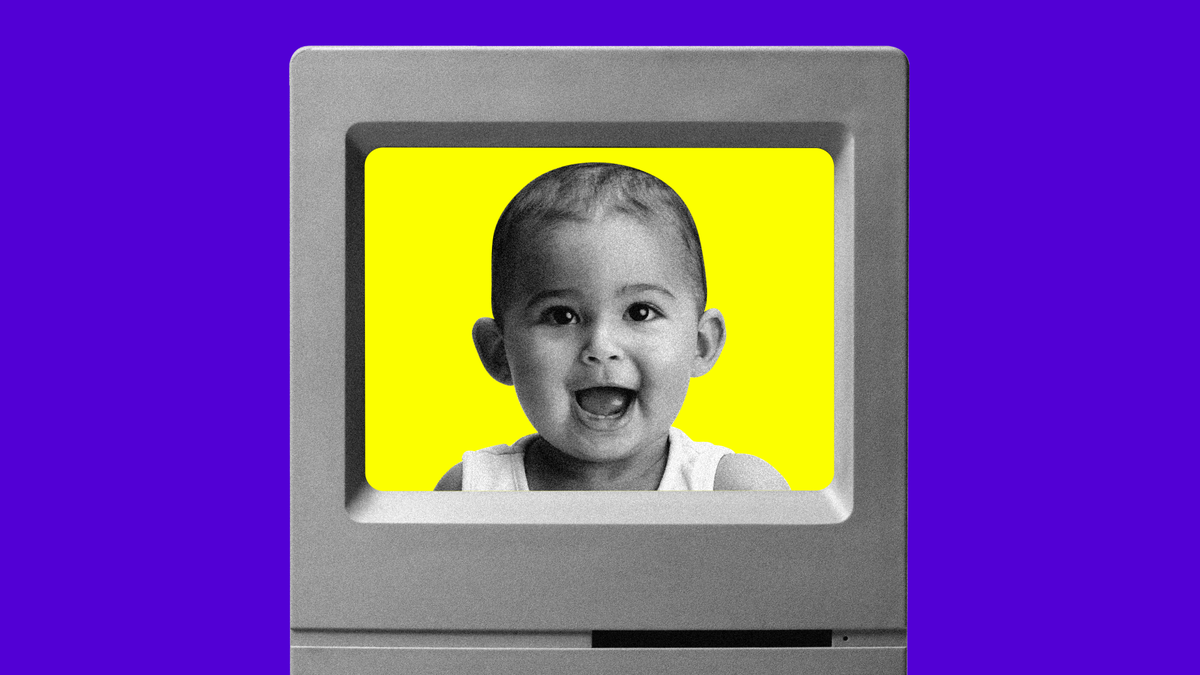
On January 10, 2025, NCUIH submitted comments to the Centers for Disease Control and Prevention (CDC) regarding its Maternal Health and Tribal Maternal Mortality Review.
- Go Deeper: NCUIH recommended that the agency continue to engage in listening sessions on maternal health and Tribal maternal mortality review and continue to invite UIOs to these listening sessions to give UIOs the opportunity to share insights gained from providing services to their patient populations to support maternal health.
Upcoming Federal Agency Comment Opportunities:
February 8, 2025 – HHS Scientific Report of the 2025 Dietary Guidelines Advisory Committee (DGAC)
- Overview: On December 10, 2024, the 2025 DGAC released its Scientific Report. The Report discusses the importance of Traditional Foods for AI/AN people and states that more research is needed on the dietary patterns and preferences of AI/AN populations to address knowledge gaps regarding AI/AN diets. Read more on NCUIH’s blog.
- Comment Deadline: February 8, 2025. Follow the instructions for submitting comments at www.regulations.gov.
Monitoring the Bench: Kerr v. Planned Parenthood South Atlantic
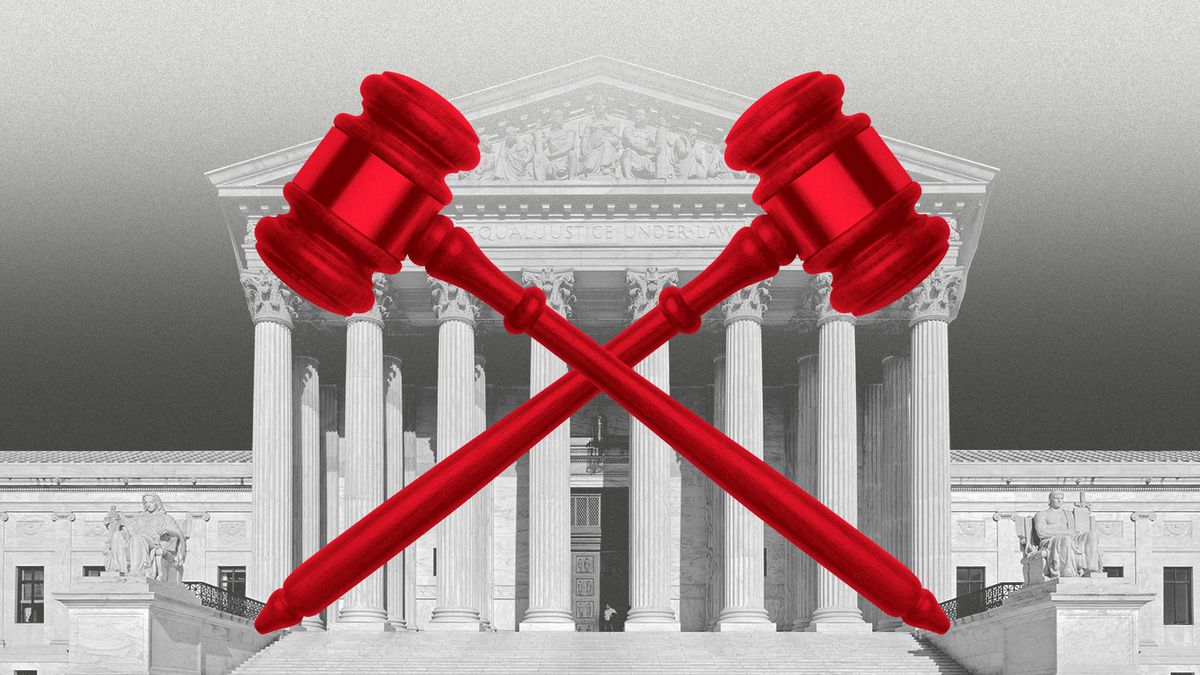
Kerr v. Planned Parenthood South Atlantic
- Issue: Whether the Medicaid Act’s any-qualified-provider provision unambiguously confers a private right upon a Medicaid beneficiary to choose a specific provider.
- Relation to UIOs: Could limit the providers Medicaid beneficiaries are able to see and change the definition of who a “qualified” provider is. If a provider is no longer considered “qualified,” they would then be cut off from receiving Medicaid funding. While UIOs are unlikely to be removed as providers, it is important to track to see where SCOTUS stands on Medicaid issues.
- Case Status: Supreme Court granted certiorari to hear the case on December 18, 2024. No oral argument has been scheduled yet.
ICYMI: Recent Dear Tribal and Urban Leader Letters (DTLL/DULL)

December 20, 2024, DTLL – IHS Contract Support Costs (CSC) decision.
- The IHS Director writes to Tribal leaders to announce the Agency’s decision on how the IHS will calculate Contract Support Costs (CSC) on expenditures of third-party reimbursements and provide next steps.
- IHS enclosed a template and certification form that will be used to estimate eligible CSC for anticipated expenditures of program income and will be immediately effective.
- Both the template and certification form will also be used in final reconciliations of the CSC incurred by Tribes and Tribal Organizations for the expenditure of program income.
December 26, 2024, DTLL/DULL – IHS shares information on addressing the escalating cases of syphilis in Tribal communities.
- Based on the feedback provided by Tribal Leaders during a Tribal Consultation on August 5, 2024, the National Syphilis and Congenital Syphilis Syndemic Federal Task Force is working to expand access to syphilis testing and treatment, enhance data collection and heighten surveillance, increase awareness and education among provider groups and engage communities and health departments.
- In October 2024, IHS announced the allocation of $12.3 million to 17 Tribal and Urban Indian Organizations across 11 states as part of the Ending HIV/HCV/Syphilis Epidemics in Indian Country Initiative.
- OASH intends to support the deployment of up to 45 Commissioned Corps officers to the Great Plains Area from January 5, 2025, through March 31, 2025, to support local public health efforts on the ground to address syphilis infections.
December 26, 2024, DTLL/DULL – IHS letter informing that IHS will proceed with the competitive grant funding distribution method for the Community Opioid Intervention and Prevention Program (COIPP).
- The IHS Director writes to Tribal leaders and UIO leaders to share that IHS will proceed with the competitive grant funding distribution method for the COIPP.
- IHS receives $11 million annually for COIPP and $9.5 million for grants which includes funds for Tribes and a set-aside for Urban Indian Organizations.
January 2, 2025, DTLL/DULL – IHS letter to announce the appointment of Dr. Chris Poole to serve as the Director of the IHS Bemidji Area.
- The IHS Director writes to Tribal leaders and UIO leaders to announce the appointment of Dr. Chris Poole, an enrolled member of the Choctaw Nation of Oklahoma, to serve as the Director of IHS’ Bemidji Area.
- Dr. Poole is responsible for providing leadership in the administration of a comprehensive Federal, Tribal, and Urban Indian health care system for AI/AN people.
January 10, 2025, DTLL – IHS announces the Calendar Year (CY) 2025 All-Inclusive Rates (AIR) have been published.
- The IHS Director writes to Tribal leaders to announce that the Federal Register Notice for the CY 2025 AIR was published on December 16, 2024.
January 13, 2025, DTLL/DULL – IHS announces upcoming sessions on IHS’ Health Information Technology (HIT) Modernization Program.
- The IHS Director writes to Tribal leaders and UIO leaders to announce four upcoming information sessions in CY 2025 regarding the IHS HIT Modernization Program.
- Session I: Open Dialogue with IHS Health IT Modernization Program Leadership – Thursday, February 13, 2025, 1:30-3 PM EST. Register here.
- Session II: Four Directions Warehouse – Thursday, May 15, 2025, 1:30-3 PM EST. Register here.
- Session III: PATH EHR Scope and Capabilities – Thursday, August 7, 2025, 1:30-3 PM EST. Register here.
- Session IV: Pilot Site Implementation Pathway – Thursday, November 6, 2025, 1:30-3 PM EST. Register here.
- In conjunction with ongoing Agency outreach, IHS will also be seeking recommendations and feedback via Tribal Consultation and Urban Confer.
- Written Comments: IHS is accepting written comments and recommendations on each HIT Modernization Program information session within 30 days following each scheduled session. Email to either consultation@ihs.gov or urbanconfer@ihs.gov.
NCUIH in Action:
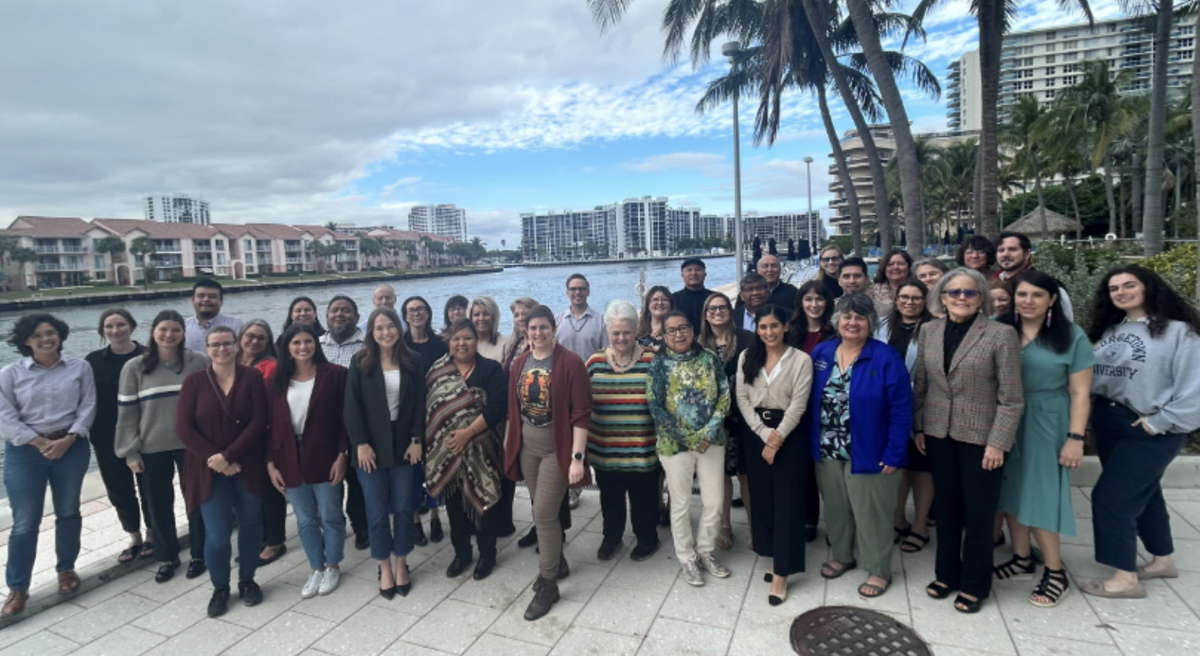
On January 14-16, NCUIH represented UIOs at the NIHB Medicare, Medicaid and Health Reform Policy Committee (MMPC) Retreat in Hollywood, Florida.
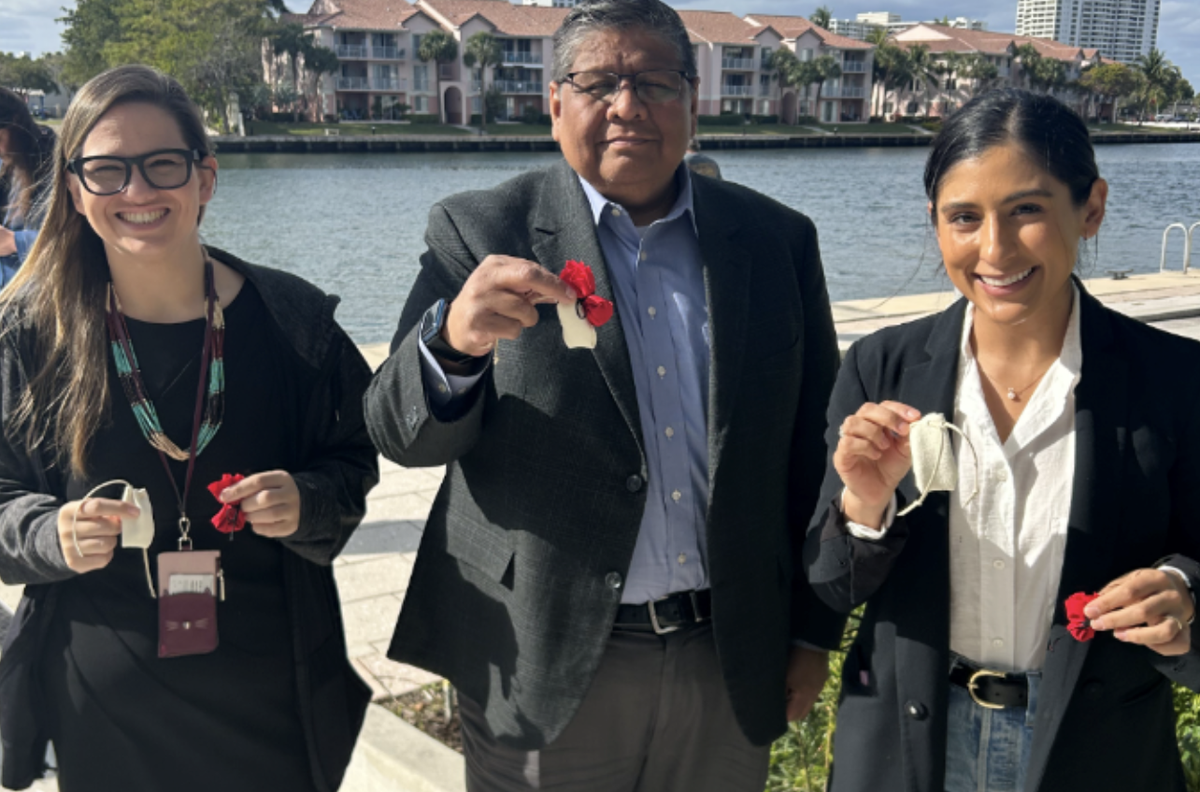
On January 19, NCUIH attended the Department of Interior Secretary Haaland’s farewell speech in Washington D.C.
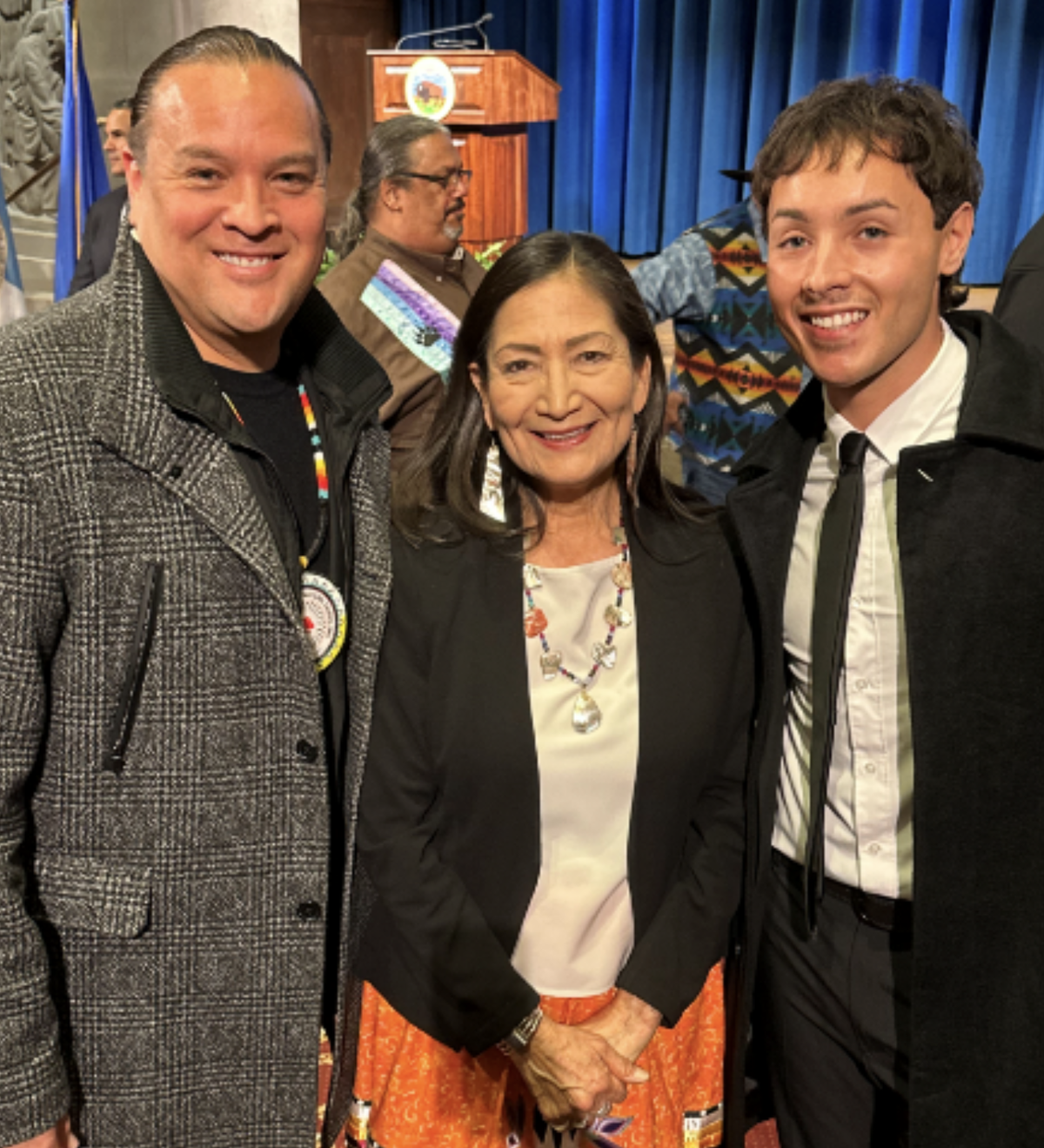
Registration is Open! NCUIH 2025 Annual Conference (April 22 – April 25)
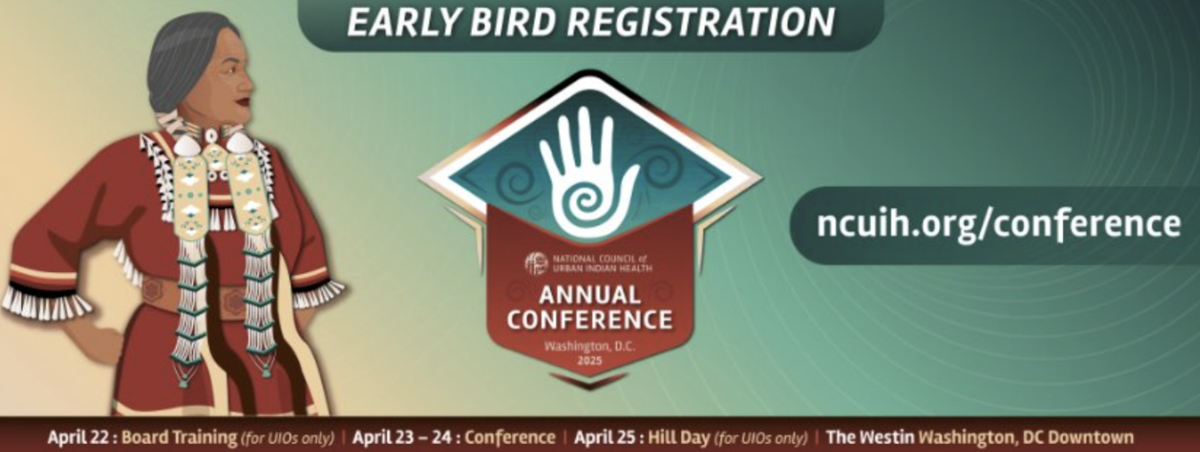
Conference Schedule Overview
- Tuesday, April 22: Training for Urban Indian Organization Boards of Directors
- Wednesday and Thursday, April 23 – 24: Conference Programming
- Friday, April 25: Capitol Hill Visits for Urban Indian Organizations
- Note: Hill Visits are for UIOs only.
Sponsorship Opportunities Are Available!
- There are several different sponsorship levels to meet your needs.
- If you are interested in sponsoring our conference, please see our sponsor guide and contact our Development department at development@ncuih.org.
- Conference Location – Room Block Information Coming Soon!
Westin Washington, DC Downtown, 999 9th St NW, Washington, D.C. 20001 - Contact: Should you have any questions or require additional information, please do not hesitate to contact conference organizers at conference@ncuih.org.
Learn more: https://ncuih.org/conference/
NCUIH Annual Conference Call for Proposals Due January 31
NCUIH is accepting proposals from AI/AN serving organizations, with a priority for UIOs to present their capacity-building best practices, successes, and innovations at our 2025 annual conference on April 22-24, 2025. Selected proposal presenters will receive a reduced registration to attend the conference. To learn more and submit a proposal, please view the submission form. Interested individuals and organizations may request to present during one of the following options:
- Concurrent 40-minute break-out session;
- Poster presentation during conference reception; or,
- 15-minute lightning presentations to share best practices.
Learn more: https://ncuih.org/conference/#Proposals
Upcoming Events and Important Dates
- February 10-13 – National Congress of American Indians (NCAI) 2025 Executive Council Winter Session (ECWS) in Washington D.C. Register here.
- February 11-12 – IHS FY 2027 National Tribal Budget Formulation Work Session (Hybrid – Arlington, VA). Join via Zoom.
- February 19 – NCUIH Monthly Policy Workgroup.
- February 20 – Office of Urban Indian Health Programs (OUIHIP) Urban Program Executive Directors/Chief Executive Officers Monthly Conference Call.
One last thing, check out these upcoming funding opportunities:
The Health Resources and Services Administration (HRSA) is accepting applications for its Behavioral Health Workforce Development (BHWD) Technical Assistance Program.
- This program provides support to HRSA’s BHWD recipients to expand the number of highly trained behavioral health providers nationwide. Eligible programs include the Behavioral Health Workforce Education and Training Program for Professionals, Behavioral Health Workforce Education and Training Program for Paraprofessionals, and the Graduate Psychology Education program. Funding is expected to be multi-year, with an estimated award date of September 1, 2025.
- Application Deadline Date: March 3, 2025 (Apply).
HRSA is accepting applications for its Behavioral Health Workforce Education and Training (BHWET) Program for Paraprofessionals
- The purpose of the BHWET Program for Paraprofessionals is to develop and expand community-based experiential training such as field placements and internships to increase the skills, knowledge and capacity of students preparing to become mental health workers, peer support specialists, and other behavioral health paraprofessionals.
- Application Deadline Date: March 18, 2025 (Apply).
The Substance Abuse and Mental Health Administration is accepting applications for its Circles of Care for American Indian/Alaska Natives Program.
- The purpose of this program is to provide AI/AN organizations with the resources to plan and design a family-driven, community-based, and culturally and linguistically competent system of care. Grant recipients are expected to organize a spectrum of community-based services and supports for AI/AN children who are experiencing or are at risk of mental health challenges.
- Application Deadline Date: March 17, 2025 (Apply).

